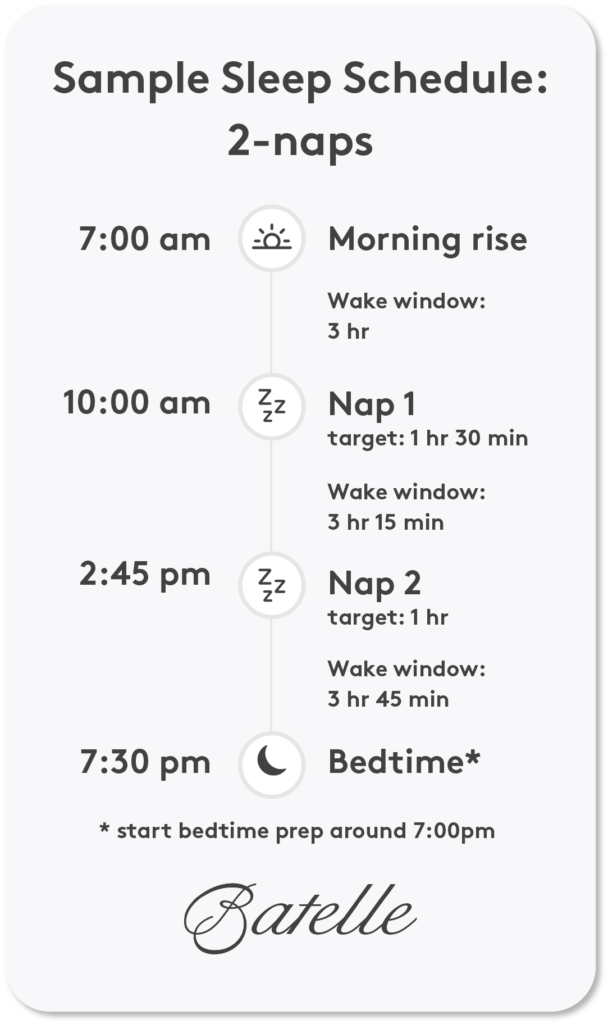
Guidelines from the National Sleep Foundation and the American Academy of Sleep Medicine suggest that infants between 4 and 11 months need about 12-16 hours of sleep each day, including naps. For healthy growth and development, it’s typically advised that an 11-month-old baby should have a minimum of 10-12 hours of nighttime sleep and take 2 naps totaling 2-3 hours of daytime sleep. It’s important to tailor a sleep schedule for your 11-month-old that meets these general sleep requirements while also considering their unique developmental needs.
Approaching their first birthday, your baby will experience a notable shift in sleep habits. You’re likely to observe a decrease in daytime naps and an increase in night-time sleep, reflecting their growing ability to stay awake longer during the day. Consequently, the total amount of sleep needed daily will gently transition from the 12-16 hour range to approximately 11-14 hours. It’s important to note, however, that sleep needs can vary widely among babies. Some may require more, others less, than these general guidelines. Monitoring your baby’s specific cues and adjusting their sleep schedule accordingly is key.

For a tailored schedule, try Batelle’s Schedule Creator – it’s a game-changer!
As your baby approaches their first birthday, you’ll notice their wake windows lengthening. This might lead to the notorious afternoon nap fight. While it might seem like they’re ready for one nap a day, most babies aren’t prepared for this transition until around 15 months. Here are a couple of options to manage this period while sticking to a 2-nap schedule:
Keep in mind that bedtime will typically occur 12-13 hours after waking in the morning. If your little one resists their afternoon nap at the usual time, but ends up taking it later in the day, bedtime will be later than usual that night. Remember that wake windows typically elongate as the day progresses. This means you’ll need to factor in 3.75 hours of awake time ahead of bedtime.
If your little one fights the afternoon nap and doesn’t end up sleeping at all that afternoon, consider making bedtime earlier. However, try to keep bedtime no earlier than 6:30pm since getting into the habit of bedtimes that are too early will result in early rising.
As a general guideline, it is recommended that your 11-month-old baby should have 3-3.75 hours of awake time between sleep periods. Typically, the wake windows are shorter at the beginning of the day and become longer as the day progresses, with the longest wake window occurring before bedtime.
As your baby approaches their first birthday, you might see changes in their sleep patterns due to the 11-month sleep regression. This period is marked by significant physical and cognitive developments, like standing up in the crib and enhanced curiosity, which can disrupt their usual sleep routines. Although it’s common for 11-month-olds to sleep longer stretches at night, these developmental milestones can lead to night wakings and changes in nap routines.
It’s natural for babies (and adults) to briefly wake during sleep cycle transitions. The ability of infants to soothe themselves back to sleep without caregiver intervention is part of their developmental journey. At Batelle, we focus on nurturing these self-soothing abilities, helping your child independently transition between sleep cycles while adapting to their developmental progress.
At 11 months, your baby’s rapidly developing skills can make nighttime sleep more challenging. To help them settle better, ensure they have ample time during the day to practice new skills like standing or cruising. This reduces their urge to practice at night.
The initial part of the night, when melatonin levels are highest, is usually when the deepest sleep occurs. As the night progresses and melatonin decreases, babies are more likely to wake. It’s common for little ones to require help to return to sleep, but relying too much on feeding or rocking can disrupt sleep for the whole family.
To foster longer, more restful nights, consider gently adjusting your baby’s sleep associations. Introducing a consistent bedtime routine that doesn’t rely solely on feeding or rocking can be beneficial. This not only aids in self-soothing but also aligns with their developmental stage, making the whole sleep process smoother for everyone.
Considering the development and potential sleep schedule challenges your 11-month-old may be experiencing, sleep training could be a beneficial tool to help bring structure to your family’s sleep habits.
Sleep regressions, often triggered by developmental changes or routine disruptions, vary in length and impact. Supporting your child’s sleep is an important part of your job as a parent, especially during periods of rapid growth, teething, or days with inadequate naps. Yet, excessive reliance on parental intervention for sleep can create unsustainable habits and lead to exhaustion and frustration.
If you’re feeling overwhelmed, implementing structured sleep training strategies can help. Establishing consistent bedtime routines and nighttime habits can effectively mitigate the impact of sleep regressions and sleep schedule changes and promote healthier sleep patterns.
The Batelle Sleep Program is a great option to help you achieve better sleep for your whole family. We’ve helped over 5,000 families get the sleep they need, and we’d love to help you too!
